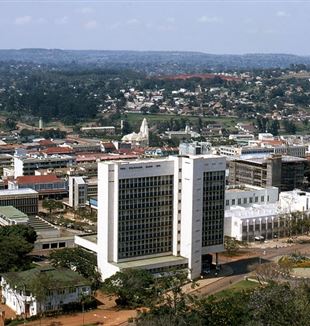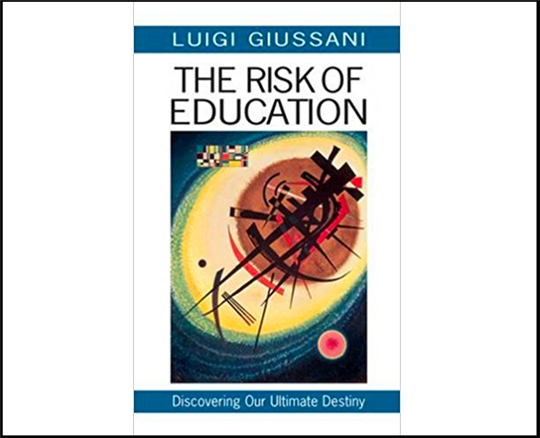
Not a Book… the Experience of a People
“From its very beginning, the Movement has stressed education; the very charism of Giussani is a method of education." The fiftieth anniversary of the Movement was celebrated in Kampala with the presentation of "The Risk of Education."It is Saturday afternoon. Guests are arriving at the Sheraton Hotel for the presentation of Giussani’s book, The Risk of Education. The Movement in Uganda is launching the book in celebration of the 50th anniversary of Communion and Liberation. For the last three years, the community in Uganda has widely read the book and a fundamental work of the Movement has been produced, a work that is still ongoing. The first reading had started among five friends and Fr Tiboni, leader of the Movement in Uganda. The friends were teaching students at Vtc, Cowa, or doing social work in Naguru Remand Home, with one, Kizito Omalla, teaching in a government school. “We wanted to understand the meaning of our work in a deeper way,” said Corrado Corradini. So they began meeting every two weeks to read The Risk of Education. The reading did not take long before producing charitable work gestures with high school students. But the greatest outcome has been the program of training teachers. In 2001, the Pontifical Council Cor Unum, in keeping with Pope John Paul II’s apostolic exhortation, Church in Africa, awarded a project to AVSI Uganda. Under the project, Kizito, Clara, and Giovanna began to use Giussani’s book, The Risk of Education, to introduce a new method of teaching they named “Educate While Teaching.”
In a country where there are more than seven million students attending elementary education, this task seemed daunting. But, today, the Catholic Church in Uganda has recognized the importance of such a method of teaching. “Education is the method of approaching the problems of the world today,” said Fr Tiboni in his introductory greeting. “From its very beginning, the Movement has stressed education; the very charism of Giussani is a method of education,” Fr Tiboni added. Presenting the book were Dr Onorato Grassi, professor from LUMSA in Rome, Archbishop Christophe Pierre, the Apostolic Nuncio to Uganda, and Mr Kizito Omala, now a lecturer at Makerere University. “What is risk?” provoked Dr Grassi. “Giussani describes two risks: that of the one being educated and that on the side of the educator. Both have to do with freedom,” continued Grassi. 
The floor then passed to Omala: “Today, we celebrate the 50th anniversary of Communion and Liberation. For this reason, we propose an educative experience that has become mine, too, part of which is contained in the book, The Risk of Education.” “The true education that people of today, men and women, need, as a matter of urgency,” continued Kizito, “is described in Giussani’s book by Josef Jungmann’s definition: ‘To educate is to introduce a person to total reality.’ It is the most fascinating and intelligent description of education that I, being a professional teacher of Physics, Mathematics, and Statistics, have ever encountered,” he added. The Nuncio, as the last panellist of the day, said: “When I heard about the Cor Unum project, I found it appealing, but I thought it too ambitious. We are overwhelmed with problems, so we find ourselves sceptical. But, today, the same people who started the project are here as witnesses,” he added. “What is being presented today is not a book on education but an experience of a people, which is still being lived even now as I speak,” stated the Nuncio. “We live in a world where education is linked to development of the individual. But The Risk of Education tells us that education is wider and deeper than instructions or acquisition of skills and knowledge,” said the Nuncio.
Sitting in the front row of the hall and listening attentively to the presentations were those from the Episcopal Conference of Uganda, who were in Kampala and had been invited to attend the launching of the book. At first, our work with some bishops had seemed ambitious. Yet now, our presence and concern for education is approved and recommended by the bishops. This was expressed, for instance, by Archbishop John Baptist Odama of Gulu. The challenge now presented to the Movement is enormous. For it was not only the bishops who saw the importance of education as proposed by Fr Giussani, but also the Permanent Secretary of the Ministry of Education, Mr Francis Xavier Rubanga, who acknowledged the work done by AVSI and proposed that such a method should be used in all teacher training institutions: “We need to review the kind of education we give to our tutors; we need to include the ‘curriculum of the heart’ in all institutions.”